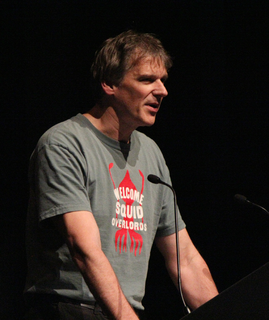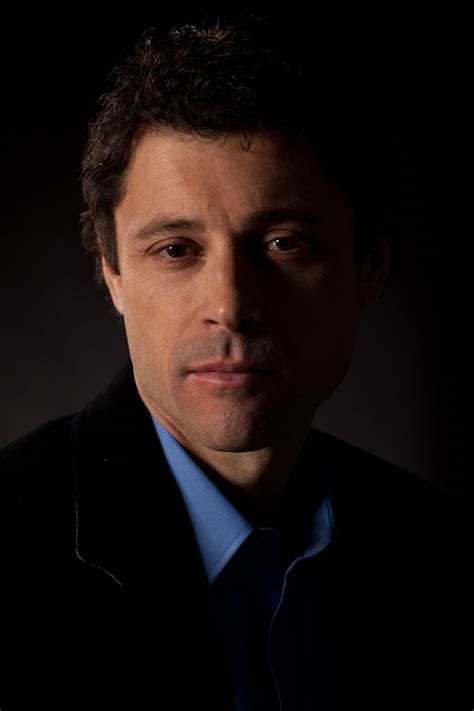A Quote by Frederick Lenz
That which is right is different for each one of us in each situation. There isn't a moral code that I or anyone can lay down that will tell you what your dharma is.
Related Quotes
Each situation is different... Each situation, I'm a different person I guess. He's present; the actors are present; and you just work in that moment, trying to flush it out. We have history from Assassins and Wicked, but it's always new beginnings between us. You start off fresh and that's what I like and respect about him.
If you listen to two people who are arguing about something, and they each of them have passionate faith that they're right, but they believe different things---they belong to different religions, different faiths, there is nothing they can do to settle their disagreement short of shooting each other, which is what they very often actually do.
If we wish to know about a man, we ask 'what is his story--his real, inmost story?'--for each of us is a biography, a story. Each of us is a singular narrative, which is constructed, continually, unconsciously, by, through, and in us--through our perceptions, our feelings, our thoughts, our actions; and, not least, our discourse, our spoken narrations. Biologically, physiologically, we are not so different from each other; historically, as narratives--we are each of us unique.
Because each photograph is only a fragment, its moral and emotional weight depends on where it is inserted. A photograph changes according to the context in which it is seen: thus Smith's Minamata photographs will seem different on a contact sheet, in a gallery, in a political demonstration, in a police file, in a photographic magazine, in a book, on a living-room wall. Each o these situations suggest a different use for the photographs but none can secure their meaning.
If someone offends you, don't tell anyone about it except your elder, and you will be peaceful. Bow to everyone, paying no attention whether they respond to your bow or not. You must humble yourself before everyone and consider yourself the worst of all. If we have not committed the sins that others have, perhaps this is because we did not have the opportunity - the situation and circumstances were different. In each person there is something good and something bad; we usually see only the vices in people and we see nothing that is good.
Perfect hexagonal tubes in a packed array. Bees are hard-wired to lay them down, but how does an insect know enough geometry to lay down a precise hexagon? It doesn't. It's programmed to chew up wax and spit it out while turning on its axis, and that generates a circle. Put a bunch of bees on the same surface, chewing side-by-side, and the circles abut against each other - deform each other into hexagons, which just happen to be more efficient for close packing anyway.



































